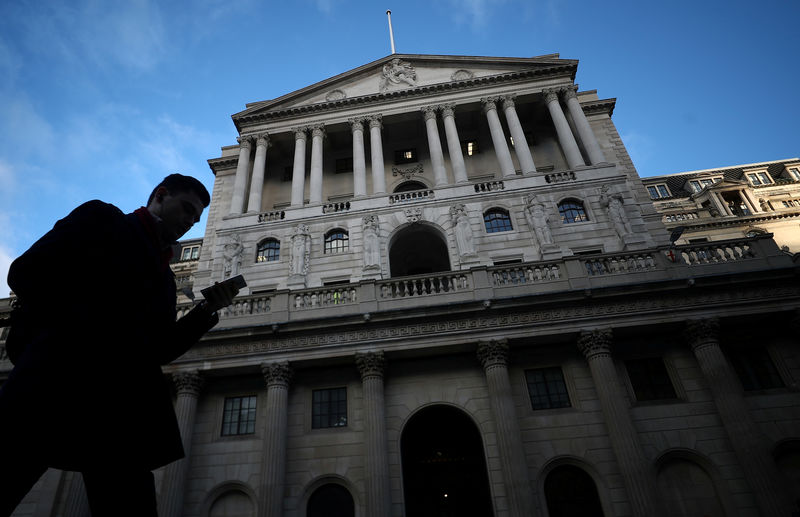By William Schomberg and David Milliken
LONDON (Reuters) - Britain's workers received their biggest pay rises in more than 11 years this summer as the unemployment rate fell back to its lowest since the mid-1970s, even as the country's political crisis over Brexit deepened.
But there were a couple of signs in Tuesday's official data that the approach of the latest deadline for leaving the European Union was making some employers nervous.
Hiring was weaker than expected by most economists and vacancies fell to their lowest level since late 2017.
"At a testing time, the labor market is surpassing expectations, though there are early signs the jobs boom could be cooling down," said Tej Parikh, chief economist at the Institute of Directors, an employers group.
The Office for National Statistics said total earnings growth, including bonuses, rose by an annual 4.0% in the three months to July, up from 3.8% in the three months to June for its strongest increase since mid-2008.
Pay growth is watched closely by the Bank of England to gauge future inflation pressures, and the latest increase was stronger than all forecasts in a Reuters poll of economists.
"Once adjusted for inflation, they have now gone above 2% for the first time in nearly four years," ONS statistician David Freeman said.
Excluding bonuses, which smooth out some volatility, pay growth slipped back to 3.8%, in line with a Reuters poll forecast.
The unemployment rate fell to 3.8%, back to its joint lowest since the three months to January 1975.
JOB CREATION DOWN
But job creation was lower than anticipated at 31,000, weaker than the median forecast of 53,000 in the Reuters poll.
Vacancies fell too, touching their lowest level since the three months to November 2017 at 812,000, with small companies especially cautious about seeking new staff.
Britain's economy, which has been flirting with recession ahead of Brexit, has been heavily reliant on spending by consumers that has been boosted by the country's jobs boom and rising pay.
Many economists have attributed the strength of the labor market, at least in part, to employers hiring workers that they can later lay off rather than making longer-term commitments to investment.
There have been other signs that employers are turning more cautious about hiring before the Brexit deadline of Oct. 31, with Prime Minister Boris Johnson saying he will take Britain out of the EU without a transition deal if necessary.
A survey published last week showed the number of workers hired for permanent jobs via recruitment agencies fell at the fastest pace in more than three years in August. [nL5N25W25B]
Despite the rise in pay, the BOE is widely expected to wait for the outcome of Brexit - which it fears could damage Britain's economy if there is no deal with Brussels to ease the transition - before any decision to resume its gradual and limited series of interest rates hikes.
Ruth Gregory, an economist with consultancy Capital Economics, said the big picture of low unemployment and rising pay was likely to mean the BoE would stick to that plan when it announces its latest policy decision on Sept. 19.
"The labor market still looks set to provide solid support to the economy over the next few years and could prevent the Bank of England from becoming too dovish against the weakening global backdrop when it meets again next week," she said.
